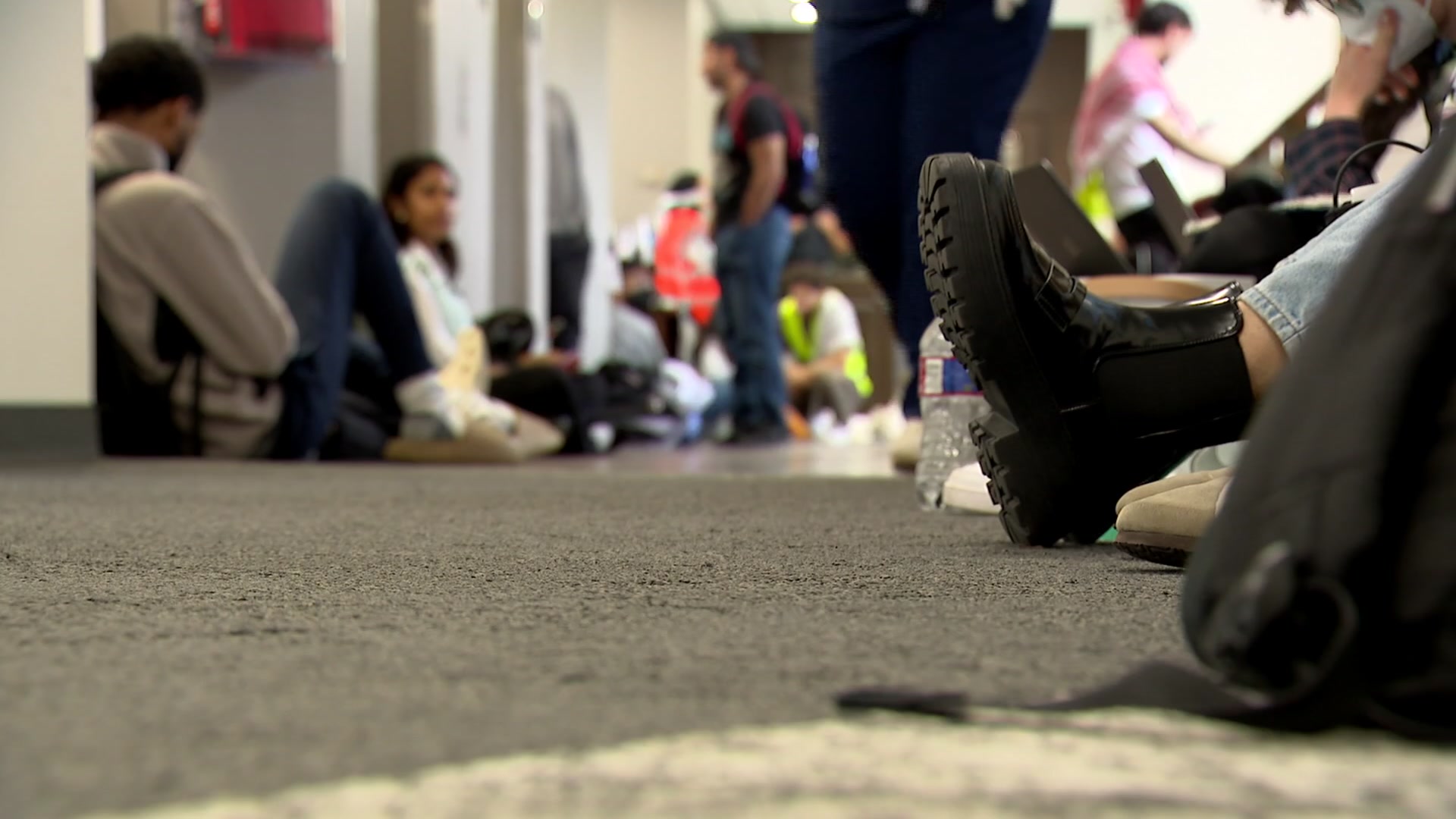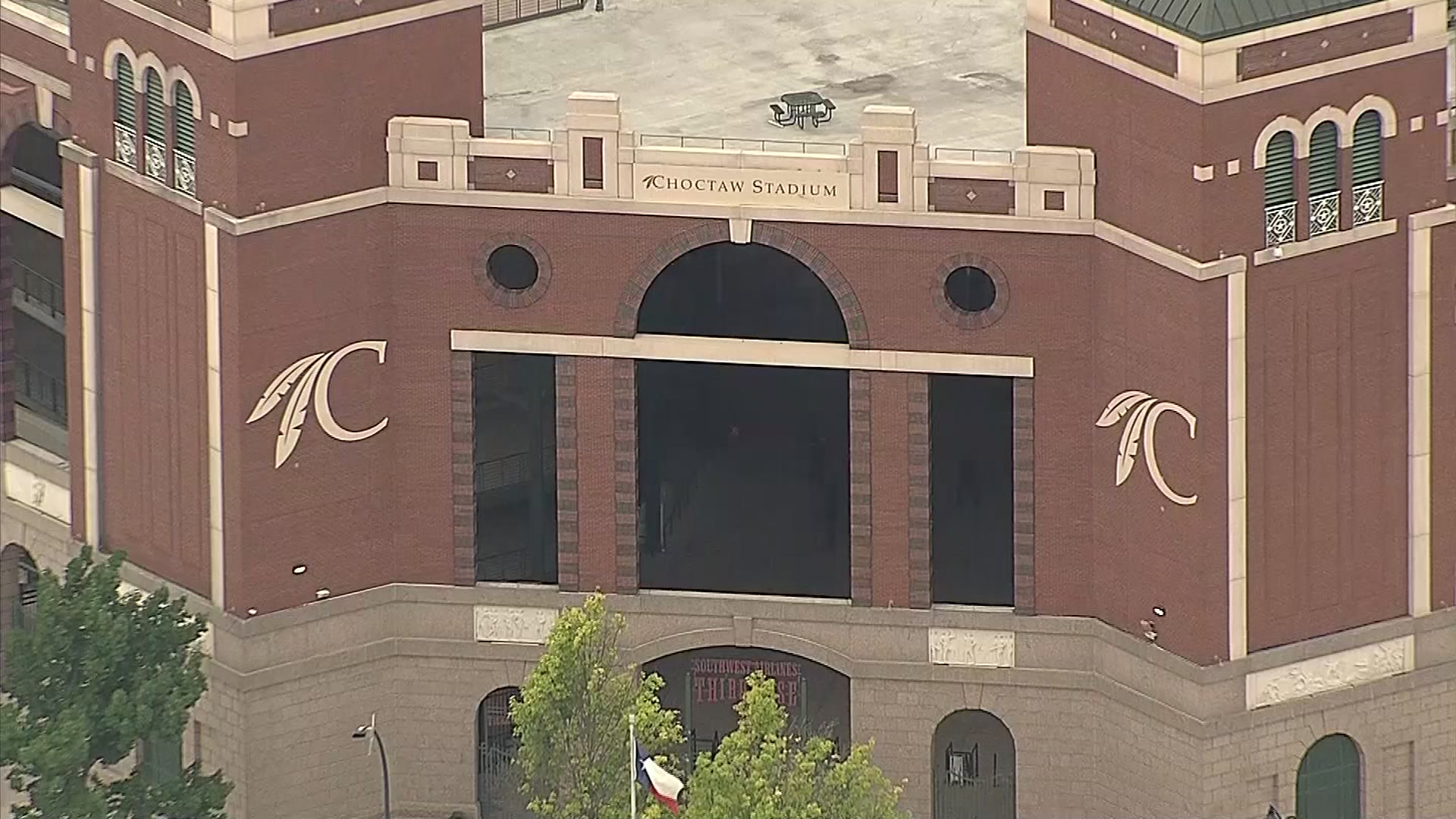Some of the most hallowed ground in Texas -- the artificial turf on its high school football fields -- may also be toxic.
Fields in two of the state's best-known high school stadiums, including the one made famous by the book and movie "Friday Night Lights," have lead levels far exceeding the Environmental Protection Agency's standard for soil, according to independent tests done within the last month.
The results, obtained by The Associated Press, are the first public indication that Texas' prized high school stadiums have become part of the national controversy over whether artificial turf contains unsafe levels of lead.
Testing commissioned by the Ector County school district on the turf at Odessa's Ratliff Stadium found lead at roughly 14 times the EPA standard. Similar testing by the Birdville school district in the Fort Worth suburb of North Richland Hills discovered a lead level nearly 10 times the EPA standard at that district's stadium, the Fine Arts/Athletics Complex.
Ratliff Stadium, which has a capacity of 19,500, has become part of Texas football lore and national popular culture as the home of the Permian Panthers, winners of six state championships and the team profiled in "Friday Night Lights." The Birdville stadium is also well known in the state, with a seating capacity of 12,000.
Both stadiums have the same brand of turf, a product called AstroPlay. The high lead levels were found in a secondary layer of nylon fiber at the base of the fields called the "root zone."
Neither test found significant lead levels in the uppermost fibers, the portion of the field that athletes are in contact with most often. However, testing at the Birdville stadium also found about twice the EPA limit for lead in drinking water in the runoff from the field, an indication that the lead is being released into the environment.
Local
The latest news from around North Texas.
"Our opinion is that AstroPlay turf could pose a human health risk," wrote Michael T. Abel, project manager at the Lubbock lab that conducted the test.
Quentin Burnett, an associate superintendent in the Birdville school district, said he and other officials are now attempting to learn whether the turf, installed five years ago, can still be safely used.
"We don't have the $300,000 or $400,000 it would take to replace it any more than anybody else does," he said. "But we're not going to have something that's unsafe for our students."
David Finley, the Ector County school district's director of facilities and maintenance, said the district sees no immediate cause for concern. For the time being, he said, it will continue monitoring the field, also five years old.
Elsewhere in the country, school officials have closed facilities that showed lead levels far lower than those measured at the two Texas stadiums.
The Beverly Hills, Calif., school district recently closed an elementary school playground with AstroPlay after discovering that the lead in its "root zone" was more than twice the EPA standard. The playground has been removed as hazardous waste and will be replaced, said Jim Fahey, director of maintenance and operations for the district.
"How do you explain to a parent that it's OK to play in these conditions?" he said, describing the school district's position. "We didn't want to have to explain ourselves or be second-guessed on this."
The lead in artificial turf comes from lead chromate, which until recently was widely used in the pigment that colors the nylon or polyethylene fibers.
Artificial turf manufacturers say the danger is overblown because the lead is largely contained in the fibers. But critics contend that the fields present a risk as they degrade due to use and sunlight.
The topic has generated controversy since two fields in New Jersey were closed in April after testing by state health officials found lead levels eight to 10 times the EPA soil standard.
Those fields were the carpet style of AstroTurf, which has been out of favor for years. But more recent testing in other states has shown high lead levels in the latest generation of turf, which mimics real grass by using longer fibers and rubber or sand "infill."
AstroPlay was the major "infill" product manufactured by Southwest Recreational Industries Inc., a Leander, Texas, company that went out of business in 2004. The company patented the "root zone" and marketed it as a unique feature for stabilizing the rubber granules.
"No field is exempt until you get reliable data to indicate whether there is high lead concentration in the product," said Glenn Pulliam, a New Jersey health official who was involved in analyzing the state's test data.
More than 200 of Texas' 1,154 high school stadiums have artificial turf, according to Bob McSpadden, who has a Web site devoted to the state's stadiums.
Despite the publicity generated by the New Jersey tests, the Ector County and Birdville school districts were the only districts among more than a dozen in Texas contacted by the AP that had tested their fields.
"We're not burying our head in the sand," said Joe Loerwald, athletic director for the Round Rock school district outside Austin, which has an AstroPlay field. "But, at the same time, we don't see it as a prevalent problem."
The fact that so few of the state's school districts have tested their turf for lead is worrisome, said Winifred Hamilton, director of environmental health at the Baylor College of Medicine in Houston.
"It seems to me that we've jumped into something without properly understanding it," she said.
(Dr. Stephen Waddell, BISD Superintendent of Schools, released a statement about this story on Thursday. "Though the basis of the story is true, I want to take this opportunity to share with you additional information the media did not report," he said. Click here to read his full response. )



